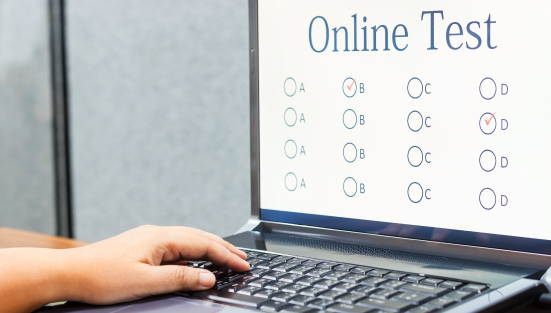How to Measure your Technology Readiness in 2022?

“Everybody is a genius, but if you judge a fish by its ability to climb a tree, it will live its whole life believing that is stupid” – Albert Einstein
Einstein’s words remind us to think twice before measuring ourselves (and others) against inappropriate standards. Evaluating a person’s ability and skills needed to perform a task in an organisation is as imperative to know as it is difficult to assess.
Help at Hand
FutureSkills Prime (FSP) is a first of its kind digital skilling ecosystem designed to make our youth future ready. A platform that provides interested candidates with multiple options for their skilling needs on emerging technologies and professional skills. A learner who registers on the FSP portal can learn digital fluency, earn certificates for courses aligned to industry-approved curriculum, go through blended learning from key program partners like CDAC/NEILIT and complete bridge and foundations courses on emerging technologies. Courses from Microsoft, AWS, Cisco, Adobe are hosted on the FSP platform. Reskilling/ upskilling imperatives in areas of new and emerging technologies, with the Government acting as facilitator
FSP offers a unique Competency Diagnostic to all learners who register on the portal. Competency Diagnostic works on the methodology to evaluate a learner on his competence level for a particular skill or technology. A learner can choose from an array of options such as- Artificial Intelligence, Big Data Analytics, cybersecurity, cloud computing, Web, Mobile Development & Marketing, Blockchain, Internet of Things, and Robotic Process Automation.
Government of India is incentivizing learners by means of offering this test for free. The government is bearing 100% cost of assessment of the learners who have successfully registered and are identified as a beneficiary.
Post successful registration on the portal, the candidate needs to appear for a 60-to-90-minute online test. The test assesses the candidate’s aptitude and technical skills and makes recommendations on candidates’ suitability for selected technologies and also recommends suitable course types the candidate can opt for to excel in their careers.

Based on the diagnostic, detailed learner-specific reports are shared with the learners in a user-friendly, downloadable format. Sections include –
- “Summary” section which provides an overall snapshot of the candidate’s performance in the aptitude and technical tests. The section includes a graphical representation of the scores.
- “What did we assess? “ is the next section of the report, this includes the definitions of the topics evaluated in the technical module(s) for general understanding of the reader.
- “Recommendations” section provides learners with job family and course type recommendations in the chosen technology area(s).
- Course and job family recommendations are made to the learners based on the average scores. For job family, scores are categorised into high, medium, and low. Depending on the score of the learner, respective course recommendation will be made from pathways, foundation, and competency-based courses. A learner can easily route itself to the respective carousel where the recommended course prevails.
The competency diagnostic is one of its kind tools which enables the learners to self-evaluate their readiness for a technology of their choice and get a comprehensive report which will give the learner a holistic view of his/her understanding in the chosen technology.
With the help of the Competency Diagnostic, learners can take up industry recommended and validated courses and have an edge above others. The fact that the diagnostic is backed by the government adds extra value to it
Written by Varun Nagpal, AVP- Business Development at SHL


